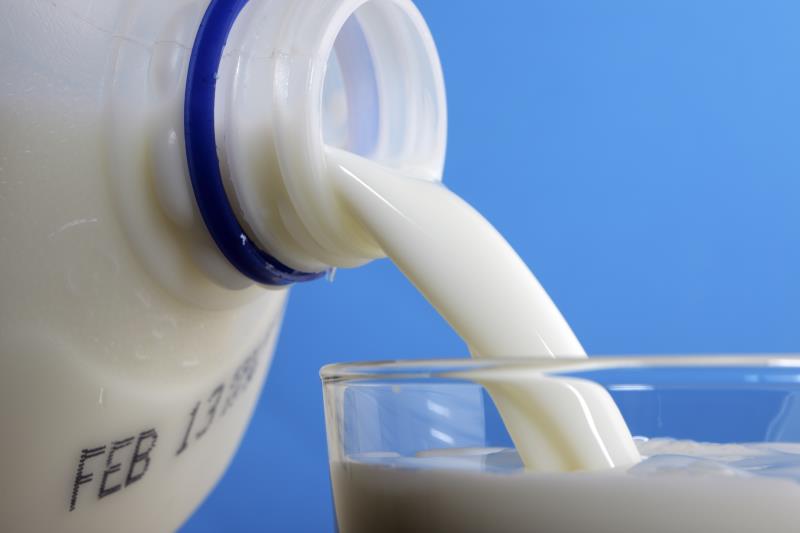EU School Scheme
The EU school scheme supports the distribution of fruit, vegetables, milk and certain milk products to schoolchildren, from nursery to secondary school.
The published text proposes to amend the EU School Scheme covering 1 January 2028 – 31 December 2034. The proposal sets common goals while giving Member States flexibility in how they apply the scheme. Governments will decide who is eligible, which groups to prioritise, and which schools, suppliers, or authorities are involved. They will also oversee two main actions: distributing fruit, vegetables, and milk, and raising awareness about nutrition.
Only foods meeting strict nutritional standards will qualify—fresh fruit and vegetables, certain processed products, fresh bananas, and plain milk and dairy without added sugar or flavourings. High-sugar, high-fat, or artificially enhanced products will not be allowed.
The proposal also encourages Member States to focus on seasonal and local produce, organic and sustainably packaged foods, products with a low climate footprint, and items from small farms, fair-trade systems, or higher animal welfare standards.
Marketing Standards
Protein crops, cheese, beef, pigmeat, sheep meat, and goat meat are added to the list of products for which marketing standards can be adopted.
EU marketing standards may apply directly in GB following negotiation of the GB-EU SPS agreement.
Meat-related terms
The text protects meat-related terms by ensuring that “meat” exclusively refers to the edible parts of an animal, and that "meat products" refers to products derived from meat. The term meat may also refer to composite products where meat is essential and not replaced by any substitute. The following names are reserved for products derived exclusively from meat at all stages of marketing:
Beef; Veal; Pork; Poultry; Chicken; Turkey; Duck; Goose; Lamb; Mutton; Ovine; Goat; Drumstick; Tenderloin; Sirloin; Flank; Loin; Ribs; Shoulder; Shank; Chop; Wing; Breast; Thigh; Brisket; Ribeye; T-bone; Rump; and Bacon.
These provisions would apply a year after the entry into force of the Regulation.
Sectoral interventions
The text defines the requirements regarding the content and policy objectives for interventions that aim to ensure the functioning and stability of agricultural markets. When including interventions in their National and Regional Partnership (NRP) Plans, Member States would have to ensure consistency with other interventions at a sectoral level.
Protein Crops
The proposal establishes rules for the mandatory recognition of producers and interbranch organisations in the protein crop sector. A new protein crop sector is created in Annex I to the CMO Regulation, replacing the current dried fodder sector.
Existing producer organisations (POs) and interbranch organisations (IBOs) will retain recognition under the new sector, while Member States must withdraw recognition for any organisation that no longer meets the criteria, at least two years after the Regulation takes effect. The protein crop sector will also require Member States to recognise POs and IBOs upon request, supporting a stronger and more organised value chain.
Requirements for Flax and Hemp
All hemp plant parts are now included in the flax and hemp section of Annex I, while linseed moves to “other products.” Imports of hemp and hemp seeds are allowed if THC does not exceed 0.3% and EU rules are met, with non-sowing seeds restricted to authorised importers. Hemp seeds other than for sowing can only be imported by importers authorised by Member States to ensure that the seeds are not intended for sowing.
Existing producer organisations (POs) and interbranch organisations (IBOs) will retain recognition under the new sector, while Member States must withdraw recognition for any organisation that no longer meets the criteria, at least two years after the Regulation takes effect.
Sugar
The proposal clarifies that the rules on sugar agreements and purchase terms apply not only to sugar beet, but also to sugar cane. It would also provide that the beet pulp obtained from the beet delivered remains the property of the beet seller unless otherwise agreed. Furthermore, delivery contracts should clearly specify how the pulp will be returned, kept, or processed. They should also state, where relevant, the quantities involved, how pressing or drying costs are shared, and the price or method used to calculate any compensation owed.
These provisions will apply starting from October 1 of the year following the Regulation’s entry into force.
Additional Import Duties
The text amends the calculation method used to fix the trigger volume for the purpose of applying additional import duties to specify that the calculation should be based on the average yearly imports in the three preceding years. Furthermore, the provision in the CMO Regulation preventing the imposition of additional import duties when imports are deemed unlikely to disrupt the EU market or when the impact would be disproportionate to the intended objective is removed.
Supplies in Emergencies
The proposal requires Member States to have national or regional plans for agricultural product preparedness, share stock information, appoint a coordinating authority, and take part in EU-level stress tests. The Commission could adopt measures on emergency responses, cross-border cooperation, reserve management, and handling sensitive supply data.
A new European Food Security Crisis Mechanism (EFSCM) would bring together Member States’ authorities, stakeholders, and select third countries to coordinate efforts and strengthen supply chain resilience. Member States must manage reserves to minimise market distortions. These rules would take effect one year after the Regulation enters into force.
Programme of Options Specifically Relating to Remoteness and Insularity (POSEI)
Rules on using a logo for quality agricultural products and special state aid for the sugar sector in France’s outermost regions will be incorporated into the CMO Regulation.
Additional Rules and Empowerments
The proposal integrates the rules and empowerments relevant for certain provisions of the CMO Regulation found in Regulation (EU) 2021/2116 concerning public intervention and aid for private storage, tariff quotas, recognition of producer organisations, and securities to the CMO Regulation.
An empowerment to adopt Delegated acts concerning penalties for operators in cases of non-compliance with the conditions and eligibility requirements for submitting an application under a tariff quota that was included in the now repealed Regulation (EU) 1306/2013 would also be added to the CMO Regulation.
